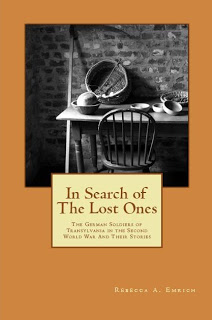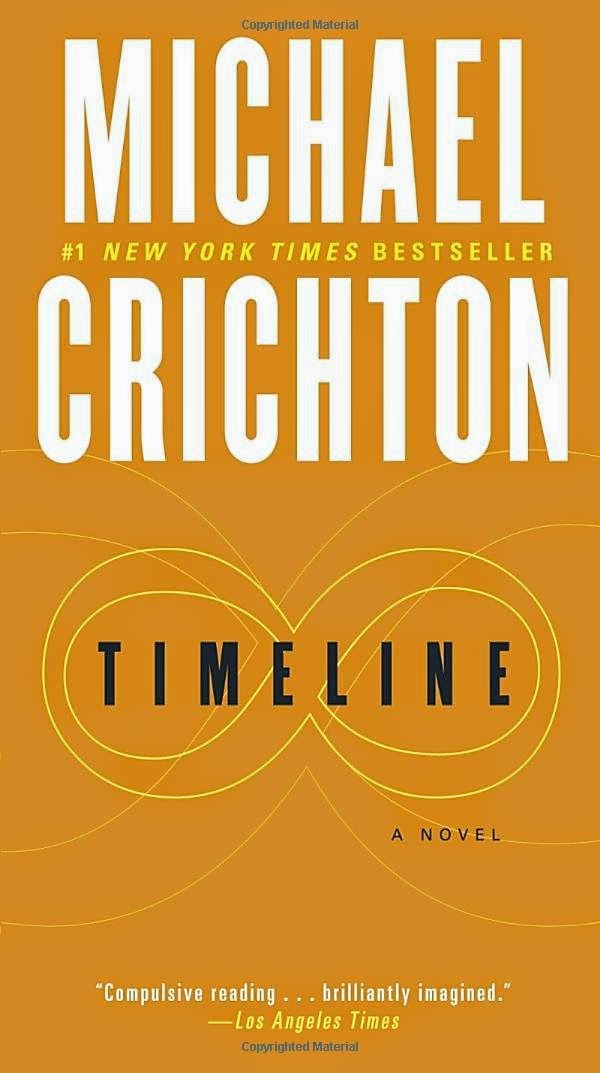
Guest Post Charles E Wells: Writing and “Typos” and Having F-U-N!
March 5, 2014
 The English teacher read it, shook
The English teacher read it, shook
her head from side to side and threw it in the trash. “Charles,
if you want to graduate I suggest you stop trying to be the class
clown.” (Some English teachers refuse to exhibit a sense of humor)
 I came up with that based on 25
I came up with that based on 25
years experience writing for print newspapers and magazines. There
are areas of that business (What I call “coat and tie writing”)
that I hate with a passion because it’s more fun to make something up
that repeats facts gathered during research. I want to entertain
readers, not inform them. I have no desire to write newspaper
headlines and ensuing facts and details about people killed in auto
accidents. It’s hard to crack a joke with the readers about such
things, know what I mean?
 Now before I wrap this up, let’s be
Now before I wrap this up, let’s be
perfectly honest. Nobody is perfect. Mistakes happen (**I never make
tpyos**) during creation because a good author isn’t trying to follow
the laws of grammar and English. They focus on telling the story that
is pouring out of their head. (Or poured out of their head during an
outline) An editor sometimes gets enthralled in the story and
switches from being an editor over to being an avid reader and their
mind’s eye misses things. My advice for all writers and authors is
this. Make the first run through the story (or book) assuming that
nobody but you will ever read it. Have fun, play around, get your
kicks and tricks out of your system and once you have a beginning, a
middle, and an end to the story, decide if you want to share it with
others. If you do then back up and make a second pass only slow down,
watch for pot holes, detours, flubbed plot lines and missed time line
functions.
Thanks Charles for this blog post. We hope you enjoyed it as much as we did. Charles is a great author, and very active on Twitter, so drop him a line when you have the chance. He’s always great for making a writer’s day–Rebecca and Jordan




By Charles E Wells
I’d like to thank Rebecca Emrich for
letting me share my opinions on her blog, but be careful, I have a
tricky sense of humor and I’m not afraid to use it. My first question
to her when I accepted was, “What do I write?” I can best
explain my concern with a short poem I wrote back in high school for
an English teacher who requested an essay.
letting me share my opinions on her blog, but be careful, I have a
tricky sense of humor and I’m not afraid to use it. My first question
to her when I accepted was, “What do I write?” I can best
explain my concern with a short poem I wrote back in high school for
an English teacher who requested an essay.
What do you write, when you feel
just right?
just right?
But the writings that you write
aren’t quite right?
aren’t quite right?
From the hollows of your mind …
you just can’t find…
you just can’t find…
Something right about what you
should write.
should write.
 The English teacher read it, shook
The English teacher read it, shookher head from side to side and threw it in the trash. “Charles,
if you want to graduate I suggest you stop trying to be the class
clown.” (Some English teachers refuse to exhibit a sense of humor)
I wrote the above poem around 1967,
but I started writing even before that. Before I was eleven years
old, I had a half dozen composition books filled with hand written
short ghost stories I’d created. Unfortunately, the family home
burned to the ground one day while I was at school and when I got
home, everything I owned I was wearing. All of my writings went up in
smoke and it took several years for me to start over again.
but I started writing even before that. Before I was eleven years
old, I had a half dozen composition books filled with hand written
short ghost stories I’d created. Unfortunately, the family home
burned to the ground one day while I was at school and when I got
home, everything I owned I was wearing. All of my writings went up in
smoke and it took several years for me to start over again.
So the bottom line about me as an
author. By modern standards, I’m an old dinosaur in how I create
material for the public. (Dramatic pause) … so let’s skip that and
move on to a timeless suggestion I have for all fiction authors, all
genres, regardless of age, sex, marital status, religion, or
political affiliation. It’s the credo one should live by as an
author.
author. By modern standards, I’m an old dinosaur in how I create
material for the public. (Dramatic pause) … so let’s skip that and
move on to a timeless suggestion I have for all fiction authors, all
genres, regardless of age, sex, marital status, religion, or
political affiliation. It’s the credo one should live by as an
author.
“If it ain’t fun to write then
it dang sure won’t be fun to read!”
it dang sure won’t be fun to read!”
 I came up with that based on 25
I came up with that based on 25years experience writing for print newspapers and magazines. There
are areas of that business (What I call “coat and tie writing”)
that I hate with a passion because it’s more fun to make something up
that repeats facts gathered during research. I want to entertain
readers, not inform them. I have no desire to write newspaper
headlines and ensuing facts and details about people killed in auto
accidents. It’s hard to crack a joke with the readers about such
things, know what I mean?
The above reason is why I feel there
is a distinct difference between a writer and an author. A writer
enjoys making a living with words (And there is nothing wrong with
that) while an author is blessed/cursed to write whether they want to
or not. We authors have no choice in the matter. We have to write it
down, get it out of our head, or go crazy.
is a distinct difference between a writer and an author. A writer
enjoys making a living with words (And there is nothing wrong with
that) while an author is blessed/cursed to write whether they want to
or not. We authors have no choice in the matter. We have to write it
down, get it out of our head, or go crazy.
I lay awake at night thinking about
what I’m going to write the next morning. I start that process around
6 AM and then work (without major interruptions) for what seems like
a half hour. Finally, I glance at the clock and it reads 1:15 PM.
Seven hours are gone in the real world while less than an hour passed
in the story’s plot line. (Knocks your socks off, if you know what I’m
talking about.) That’s a scary thing to happen and if you’ve never
experienced it then perhaps you’re a writer and not an author.
what I’m going to write the next morning. I start that process around
6 AM and then work (without major interruptions) for what seems like
a half hour. Finally, I glance at the clock and it reads 1:15 PM.
Seven hours are gone in the real world while less than an hour passed
in the story’s plot line. (Knocks your socks off, if you know what I’m
talking about.) That’s a scary thing to happen and if you’ve never
experienced it then perhaps you’re a writer and not an author.
Fiction writing isn’t hard work per
se, at least not during the creative processes, but once I hit the
editing and proofing part I feel like I’ve been tasked to clean out a
Georgia outhouse. This is why I consider book editors the “Gods
of the universe.” My job is to create the lightning in the sky
(the story) but a gifted and talented editor creates all the thunder,
beauty, splendor and joy of the story I created. A proofer check
polishes the final product yet those people get little to no credit
in the process.
se, at least not during the creative processes, but once I hit the
editing and proofing part I feel like I’ve been tasked to clean out a
Georgia outhouse. This is why I consider book editors the “Gods
of the universe.” My job is to create the lightning in the sky
(the story) but a gifted and talented editor creates all the thunder,
beauty, splendor and joy of the story I created. A proofer check
polishes the final product yet those people get little to no credit
in the process.
 Now before I wrap this up, let’s be
Now before I wrap this up, let’s beperfectly honest. Nobody is perfect. Mistakes happen (**I never make
tpyos**) during creation because a good author isn’t trying to follow
the laws of grammar and English. They focus on telling the story that
is pouring out of their head. (Or poured out of their head during an
outline) An editor sometimes gets enthralled in the story and
switches from being an editor over to being an avid reader and their
mind’s eye misses things. My advice for all writers and authors is
this. Make the first run through the story (or book) assuming that
nobody but you will ever read it. Have fun, play around, get your
kicks and tricks out of your system and once you have a beginning, a
middle, and an end to the story, decide if you want to share it with
others. If you do then back up and make a second pass only slow down,
watch for pot holes, detours, flubbed plot lines and missed time line
functions.
Missed time line functions? Ok,
guess I better explain that. I wrote a scene on one of my books in
which the character was driving down the road and their cell phone
battery goes dead. In disgust, they toss the phone down on the seat
beside them. (Scene ends shortly after) A month after I wrote that
scene, I did the adjoining one where five minutes later in the story
time frame, this same character is out of the car, sitting in the
living room. Suddenly their cell phone rings. They answer and talk
for five minutes. See what happened? In the story’s time line, the
cell phone is dead and still outside on the car seat. My editor
missed that. My first proof reader missed that but thank the good
lord my final proofer caught it for us all and saved the day.
guess I better explain that. I wrote a scene on one of my books in
which the character was driving down the road and their cell phone
battery goes dead. In disgust, they toss the phone down on the seat
beside them. (Scene ends shortly after) A month after I wrote that
scene, I did the adjoining one where five minutes later in the story
time frame, this same character is out of the car, sitting in the
living room. Suddenly their cell phone rings. They answer and talk
for five minutes. See what happened? In the story’s time line, the
cell phone is dead and still outside on the car seat. My editor
missed that. My first proof reader missed that but thank the good
lord my final proofer caught it for us all and saved the day.
Before I go, let me say this.
Writer’s block, by definition, is not the inability to come up with
something to write. It’s the inability of the author to open up a
blockage between their brain and their fingers. The true author is
hard to shut up, so the most dangerous time in an author’s life is
when they have nothing to say. If you suffer from writer’s block then
there’s a cause behind it. Something is worrying you or some fork in
the road of your story is hard to decide and move on. When/if you
suffer from creative block, look for the root cause, but don’t blame
your creative talents. The talents are there.. the hands are there to
serve them.. something in between is stopped up. Find it.. fix it..
and have fun. (I repeat… have fun)
Writer’s block, by definition, is not the inability to come up with
something to write. It’s the inability of the author to open up a
blockage between their brain and their fingers. The true author is
hard to shut up, so the most dangerous time in an author’s life is
when they have nothing to say. If you suffer from writer’s block then
there’s a cause behind it. Something is worrying you or some fork in
the road of your story is hard to decide and move on. When/if you
suffer from creative block, look for the root cause, but don’t blame
your creative talents. The talents are there.. the hands are there to
serve them.. something in between is stopped up. Find it.. fix it..
and have fun. (I repeat… have fun)
Thanks again for your time reading
this and I hope you’ll check out one of my stories soon.
this and I hope you’ll check out one of my stories soon.
Best regards,
Charles E Wells
Thanks Charles for this blog post. We hope you enjoyed it as much as we did. Charles is a great author, and very active on Twitter, so drop him a line when you have the chance. He’s always great for making a writer’s day–Rebecca and Jordan

Previous
The "Kick Butt" Writing Challenge
You May Also Like

Publishing Means Connecting With Your Reader
November 16, 2011
Increase Traffic and Money to Your Blog
January 28, 2015
